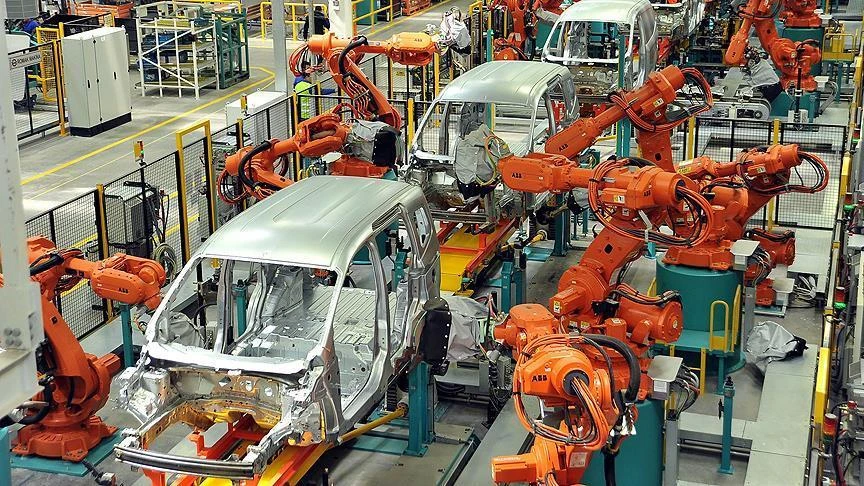Türkiye’s automotive exports under scrutiny as Trump prepares tariffs
 Trucks queue near the Mexico-U.S. border before crossing the border at Otay Commercial crossing in Tijuana, Baja California state, Mexico, on Mar. 4, 2025. (AFP Photo)
Trucks queue near the Mexico-U.S. border before crossing the border at Otay Commercial crossing in Tijuana, Baja California state, Mexico, on Mar. 4, 2025. (AFP Photo)
As United States President Donald Trump readies to announce reciprocal tariffs on April 2, dubbed “Liberation Day,” concerns are rising over the potential impact on global trade.
Trump’s plan to impose 25% tariffs on car imports has sparked fears of escalating trade tensions, particularly affecting Türkiye’s automotive exports to the American market.
US among Türkiye’s top 10 auto export markets
According to data from the Turkish Exporters Assembly (TIM), the U.S. remains a significant destination for Türkiye’s automotive industry.
In 2024, the U.S. ranked ninth among Türkiye’s top 10 automotive export markets, with the sector hitting a record $37.2 billion in total exports. By the first two months of 2025, the U.S. dropped to 10th place.
While export figures have fluctuated, Türkiye’s auto exports to the U.S. have averaged $1.1 billion annually over the past six years. In 2024, the total reached $1.2 billion, compared to $1 billion in 2023, $1.4 billion in 2022, and $951 million in 2020. Exports for January and February 2025 stood at $198 million, a 4% increase from the same period in 2023. The U.S. accounted for 3.3% of the sector’s total exports during this period, which amounted to $6 billion.

‘US imported products worth $391B in 2024’
Baran Celik, Chairman of Türkiye’s Automotive Industry Exporters’ Association (OIB), emphasized the U.S.’s role as a major automotive production hub and market. He noted that the U.S. manufactured 11 million motor vehicles in 2024, ranking as the world’s second-largest producer, with a domestic market of 14 million units annually.
“The U.S. is the largest automotive importer, bringing in $391 billion in automotive products in 2024,” Celik said. “Just the supply industry imports in chapter 8708 totaled $90 billion. Our automotive exports to the U.S. have exceeded $1 billion for the past four years, with the U.S. consistently ranking in the top 10 for automotive exports. In 2024, our supply industry exports to the U.S. alone surpassed $1 billion, largely consisting of parts and components.”
Celik highlighted that while not all details are clear, it is anticipated that the U.S. will impose a 25% tariff on both vehicles and parts, which would impact Türkiye’s automotive sector.
“Our main industry companies will feel the negative effects first. While our exports are primarily in the supply industry, we also export passenger cars and light commercial vehicles to the U.S. Additional tariffs will raise costs. As of now, no clear date has been set for the imposition of tariffs on automotive components and parts,” Celik explained.

Türkiye’s flexible production could turn challenges into opportunities
Celik pointed out that the Trump administration’s trade policies have been strict, not only toward China but also with allies like Mexico and Canada. He added that manufacturers from Japan and South Korea could also be affected by U.S. protectionist measures.
“As a result, trade wars and protectionist policies pose significant risks to global trade in the coming period,” he said.
Celik noted that while Türkiye may face challenges due to global trade disruptions, the country’s strategic position and flexible production capabilities could help transform these challenges into opportunities.
“Our country maintains a balanced approach to foreign policy and economic relations. Strong trade relations with Europe, as well as with Asia and the Americas, will be crucial in maintaining Türkiye’s strategic importance in the coming period,” he concluded.



